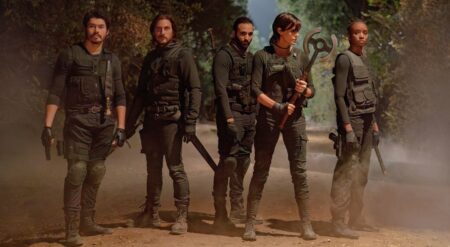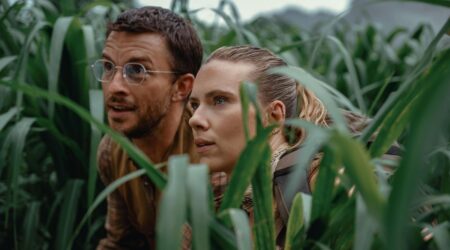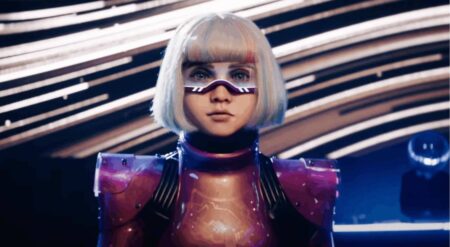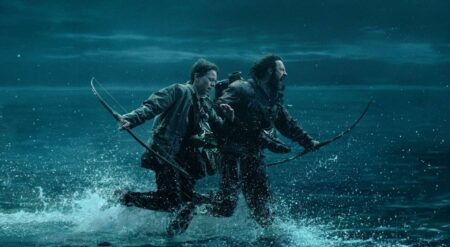
Directed by Michael Engler, and written by series scribe Julian Fellowes, Downton Abbey is a film that aims to expand on the magic of the ITV/PBS television series of the same name. In it, we see the continuing story of the Crawley family, as they ready their wealthy estate for the arrival of King George V and Queen Mary. But trouble soon arises when Mrs. Patmore, Daisy, and the rest of the servants learn that the royals travel with their own staff, which of course sets the stage for all the drama and humor we know Downton Abbey for.
When you’ve been a longtime Downton Abbey fan, you know what to expect: period drama, witty remarks, constant shocks of how times are changing, passive-aggressive dialogue, and an absurd amount of attention to the relatively mundane. And, generally, I love it. However, the formula the show has perfected for its tv audience does not translate well to film, especially when the film refuses to tell its own distinct story. That should be one of the basics of filmmaking, and that is the fundamental error of this new movie.
The Downton Abbey movie is just a longer episode of the tv series. As a longtime Downton fan myself, I left the theater entertained, but disappointed. I expected something different and distinct in a singular film, not an extended episode. Typically, with a film, you should expect a singular story that stands on its own. The underlying problem with the Downton Abbey movie is that you need to have watched the whole series to fully enjoy it. There are so many references to previous events that don’t carry weight if you haven’t watched the series. Ultimately, it’s inaccessible to people who haven’t watched the show. They might still enjoy it, but they won’t fully know what’s going on.
There’s barely a compelling conflict at the heart of Downton Abbey. The most you can make of the overarching narrative is that the Crawley family and servants feel inconvenienced by the arrival of the royals. There are so many characters audiences need to keep track of. You’re left wanting more of the standout characters like the Dowager Countess of Grantham, Lady Violet Crawley (Dame Maggie Smith).
The highlight remains, as ever, the esteemable Dowager Countess. Her interactions with all the characters, especially Lady Isobel Merton (Penelope Wilton), remain as spicy and delightful as ever. Her subplot with her cousin Lady Maud Bagshaw is certainly one of, if not the most, interesting plot points. But this is Downton Abbey, where as many as ten plots may be present in an episode. Again, that usually works for a tv episode, but it does not work for a film that should have a singular plot the audience can focus on.
Another highlight of the film is Tom Branson’s (Allen Leech) story. He is still, after all these years of being married into this family, trying to find his place. And he thankfully gets to do that with Lady Bagshaw’s maid Lucy Smith (Tuppence Middleton). He even gets a friend in Princess Mary (Kate Phillips).
Thomas, now head butler, also has a great and moving plot in which he gets to express and explore more of his gay identity. Through all these years at the estate and in a time period that shuns his existence, he is allowed to find the promise of companionship with one of the Royal servants. It’s a moving plot that’s a great cap off to what this character has gone through all the years he’s been at Downton. This is one of the few plot points that audiences can enjoy without the background knowledge of the show. However, knowledge of Thomas’ story would still enrich it.
There are some gems of side plots in this film. However, the issue is that they’re scant throughout the plethora of other plots and side plots taking place. The film wants to occupy itself with so much else going on that it doesn’t give the good plots and characters the full breathing time they deserve.
The movie wants you to care, after not knowing these characters that well, and to be invested in their relatively mundane problems without a compelling plot to drive them forward together. That’s not to say it isn’t enjoyable, or that the property doesn’t take advantage of its new film medium. There are some beautiful establishing and sweeping shots of the castles and countryside, with beautiful music to accompany it. That feeds more into the main problem though: so much of this film is just a series of beautiful cinematography with bits of drama peppered throughout. It’s like a porcelain pot in one of these castles, it’s beautiful to look at but bereft of substance.
Ultimately, this movie could have and should have, been a lot more. There was an opportunity here to tell a unique story that both continued the story of the Crawleys and tells a new establishing chapter accessible for both new fans and old. It remains, however, a beautiful period piece that will wrap you in the warm opulence of 1920s aristocratic England. There’s a lot to enjoy aesthetically, but as a cohesive, singular, and substantive piece, it leaves a lot to be desired. For this longtime Downton fan, it was enjoyable but still left me wanting more.
Downton Abbey is available on VOD.
Downton Abbey
-
Rating - 6.5/106.5/10
TL;DR
The Downton Abbey movie is just a longer episode of the tv series. As a longtime Downton fan myself, I left the theater entertained, but disappointed. I expected something different and distinct in a singular film, not an extended episode.






